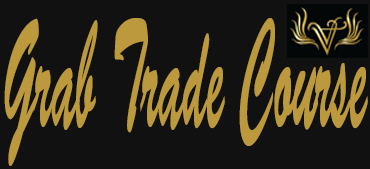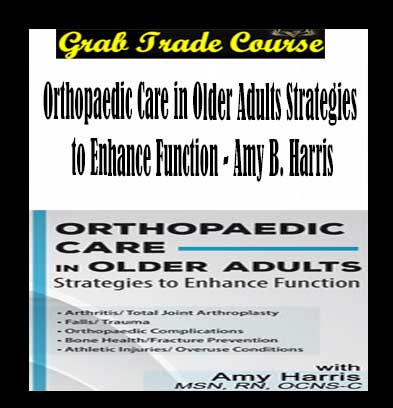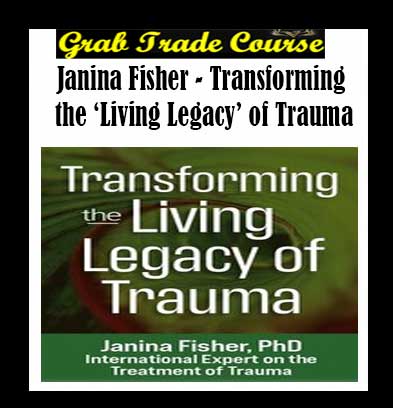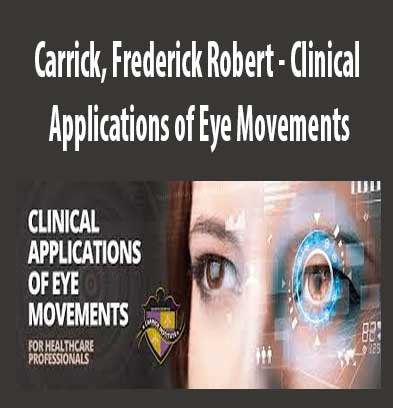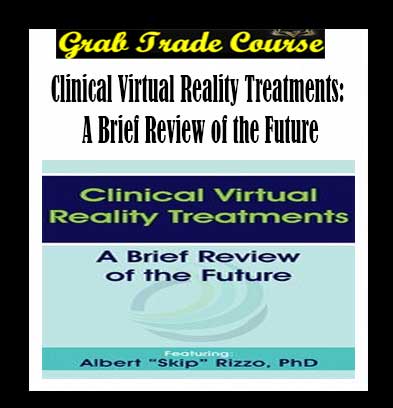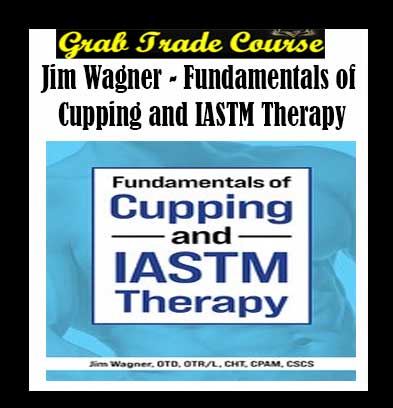Orthopaedic Care in Older Adults: Strategies to Enhance Function with Amy B. Harris
Description
Orthopaedic Care in Older Adults: Strategies to Enhance Function with Amy B. Harris
Orthopaedic Care in Older Adults download, Strategies to Enhance Function review
Does this sound familiar?
72-year-old Mary arrives to the E.R. by ambulance from her home at an assisted living facility and is noted to have an externally rotated and shortened left lower extremity. She is having significant pain in her left thigh and hip and is experiencing muscle spasms. She is a diabetic and is noted to be quite overweight for her apparent height as you examine her on the stretcher. Mary admits to have fallen twice in the past month and she states that she isn’t completely compliant with her medication regimen.
What about this scenario?
Steven, a 63-year-old gentleman, presents to the clinic with pain and difficulty moving his left knee. He states that years ago he played football in college and had two arthroscopies due to meniscal tears. He states that he knows he has some arthritis and yet he has been resisting coming in for treatment. Steven’s concern is that perhaps surgical intervention will be recommended to treat his arthritis and yet he explains to you how reluctant he is at this point to ever having surgery on his left knee again.
Older adult patients may present with a variety of Orthopaedic conditions and injuries and yet they may have multiple comorbidities. It is important to take a full medical and surgical history to ensure a safe outcome for all patients. How will you prepare to admit and care for patients with similar symptoms to those outlined above? What measures will you utilize to enhance their function and reduce their pain?
OUTLINE
Musculoskeletal Anatomy and Physiology
- Soft tissue anatomy
- Bone Structure
- Physiology of Fracture Healing
Orthopaedic Work-Up
- History
- Pain Assessment
- Physical Exam
- Fitness Assessment
- Diagnostic Studies
Sports Injuries – Challenges as Athletes Age
- Bursitis
- Tendonitis
- Epicondylitis
- Rotator Cuff Issues
- Meniscal Tears / Transplantation
- ACL Tears
- Plantar Fasciitis
Spinal Disorders Common in the Older Adult
- Degenerative Disc Disease
- Spondylolysis vs. Spondylolistheses
- Spinal Stenosis
- Metastatic Disease
- Acute and Chronic Neck and Back Pain
Fracture Prevention and Bone Health
- Risk Assessment
- Home Safety
- Bone Mineral Density Assessment (DEXA and FRAX)
- Role of Calcium / Vitamin D / Nutrition / Weight Bearing Exercise
Osteoporosis
- Assessment
- Fragility Fractures
- Non-pharmacological Treatment Options
- Pharmacological Treatment Options
Trauma/Falls
- Fracture Patterns
- Bone Healing
- Variables Affecting Recovery from Trauma
- Fracture Management and Fixation Techniques
- Hip Fracture Management
Degenerative Joint Disease
- Conservative Treatment Options
- Surgical Treatment Options
- Hips
- Knees
- Shoulders
- Ankles
- Prosthetic Types
- Selection Criteria
- Pre- and Post-operative Rehabilitation
Rheumatoid Arthritis
- Non-Pharmacological Treatment
- Pharmacological Treatment: DMARDs, Biologics
- Surgical Treatment
Orthopaedic Complications
- Immobility
- Deep Vein Thrombosis
- Pulmonary Embolus
- Compartment Syndrome
- Skin Breakdown
- Osteoporotic Fragility Fractures
- Nonunion/Mal-union of Fractures
OBJECTIVES
- Recognize the essential components of a focused examination of an adult orthopaedic patient.
- Assess the impact of overuse conditions common to aging athletes.
- Evaluate common sports injuries and recommended treatment options appropriate for the mature athlete.
- Describe bone health enhancement and fracture prevention techniques.
- Evaluate barriers to recovery from trauma in the older adult patient.
- Interpret the essential components of degenerative joint disease treatment.
- Explain how the health care team can best manage the medical and surgical needs of rheumatoid arthritis patients as they age.
- Describe potentially serious orthopaedic complications that may occur in the older adult patient.
- Develop a treatment plan for the adult orthopaedic patient which focuses on enhancing function and reducing pain.
Read more: Shame and Self-Loathing in the Treatment of Trauma
Our Policies
A. Product Quality
- We ensure that the quality of the course is good, and we update them regularly to help you keep update.
- If there is a problem you can not use, please let us know so we can fix it soon or if there is any notification, we will inform you immediately.
B. Shipping Method
- After receiving your payment, we will send you a link to access and download the course. If our team is not in the office, please wait for us about 8 hours to come back.
C. Refund Policy
- We do not accept refund after you got the link and download the course.
- We will refund your money in case of:
- Item is not as described
- Item doesn’t work the way it should
